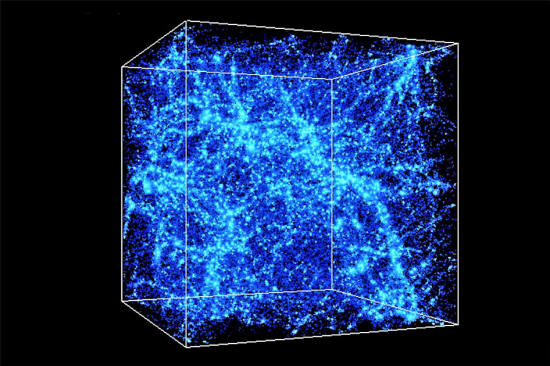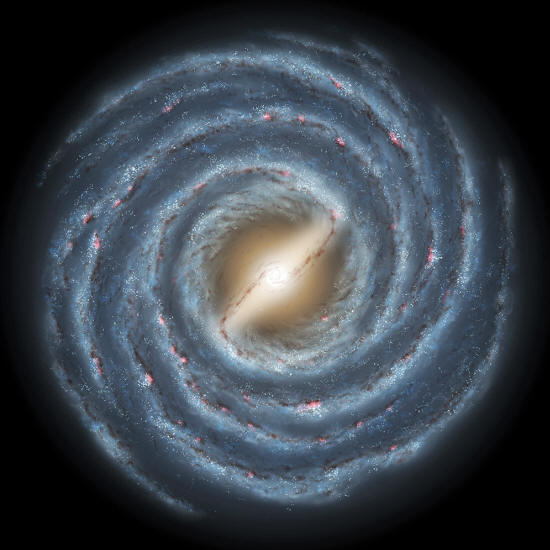|

by Dom Galeon
October 09,
2017
from
Futurism Website

In Brief
Two teams of astronomers have found a way to
observe the presence of the missing matter
connecting the galaxies in the universe.
This discovery can improve our understanding of
how galaxies were formed in the years following
the Big Bang.
Missing Links
While teams of
researchers continue the hunt for clues into the nature of elusive
dark matter and dark energy, which
comprise most of the known universe, other teams are trying to
unravel the mysteries of so-called ordinary matter, which
contains the protons, neutrons, and electrons with which we're
familiar.
While we can and
have observed ordinary matter under a variety of circumstances, we
have yet to actually see about half of what we know must be residing
in the vast gaps between galaxies, stars, and other objects in
space.
This missing matter
even accounts for much of our own
Milky Way.
However, two teams
of astronomers have now released studies outlining how they may have
found this previously unobserved matter.
One study (A
Search for Warm/Hot Gas Filaments Between Pairs of SDSS Luminous Red
Galaxies) was
undertaken by
researchers at the Institute of Space Astrophysics (IAS) in
Orsay, France, while the other team worked from
the University of Edinburgh on their study (Missing
baryons in the cosmic web revealed by the Sunyaev-Zel'dovich effect).
The two teams
confirmed that the missing ordinary matter in the universe can be
found in the form of
filaments of hot, diffuse gas linking galaxies together.
While long
predicted, these gasses have a tenuous nature that has made them
impossible to detect using X-ray telescopes.
To get around that,
both teams made use of the
Sunyaev-Zel'dovich effect. This phenomenon occurs when leftover
light from
the 'Big Bang' passes through hot gas, leaving behind a
trace of the gas that can be captured.
A map of this
effect within the observable universe was produced by the
Planck satellite in 2015.

Image Credit: NASA
Using data from the
Sloan Digital Sky
Survey, each team chose pairs of galaxies supposedly connected
by baryon strands.
Then, to make the
faint individual signals more visible, they stacked the Planck
signals for these areas. The team at IAS combined 260,000 pairs of
galaxies, while the Edinburgh team worked with more than a million
pairs.
Their findings were
similar.
The IAS group found the baryon gasses to be three times
denser than the normal mass of matter in the universe, while the
other group observed them to be six times denser.
In short, both
found definitive evidence that the gas between the galaxies was
dense enough to form filaments.
Galactic Pairs
This discovery is a
remarkable example of how new technologies can allow scientists to
test theories made decades prior.
As
Harvard-Smithsonian Center for Astrophysics in Massachusetts
professor Ralph Kraft, who wasn't involved in the
studies, told New Scientist,
"Everybody sort of knows that it has to be there, but
this is the first time that somebody - two different
groups, no less - has come up with a definitive
detection."
He added,
"This
goes a long way toward showing that many of our ideas of
how galaxies form and how structures form over the
history of the universe are pretty much correct."
Beyond
giving scientists the ability to throw around an "I told you
so" or two, the discovery of this missing matter also has
the potential to improve our current maps of the universe
and inform future research.
The more we
learn about this world in which we live, the more we
increase our ability to maneuver within it, perhaps one day
reaching the very same distant galaxies studied by these
groups of researchers.
|



